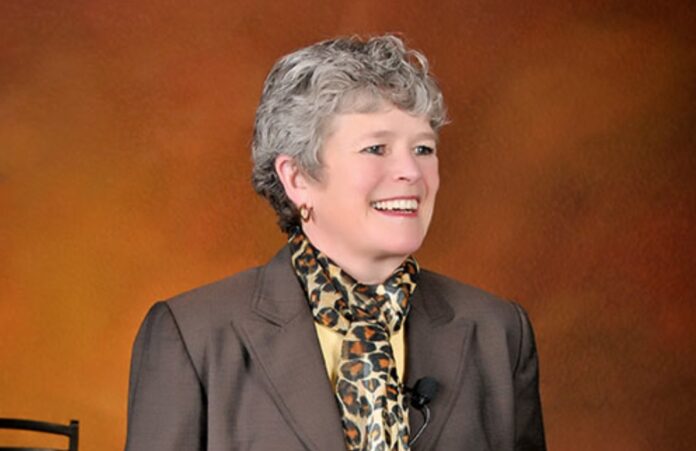By VAL VAN BROCKLIN
In January of this year, the Anchorage Daily News published two articles that uncovered widespread, shocking delays of felony cases in the Anchorage trial courts. They occurred with no regard for the suffering inflicted on victims, some of whom died during the delays, or their constitutional right to “a timely disposition” of the cases.
Appalled by what I read, I researched and revealed in a commentary that the problem was alarming before 2008. That year, a group co-chaired by an Alaska Supreme Court justice determined the average time to disposition for felony cases in Anchorage had nearly quadrupled. “This finding amounted to a ‘call to arms’ for improvements …(.)”
Some judges and court personnel were sent to training in Phoenix. A consultant was brought to Anchorage to meet with judges, prosecutors and defense attorneys. The consultant issued a 59-page report that recommended the trial courts log every requested continuance, the party requesting it, the reasons given, whether the continuance was granted, and the delay incurred if it was granted. It also recommended:
“Every six months, the chief criminal judge shall report to the Presiding Judge on the number of continuances requested and granted during the previous period(.)”
While the Anchorage court system subsequently issued repeated orders “intended” to address delays, none contained the recommended provisions ensuring accountability.
The problem worsened. From 2014 through 2022, the Office of Victims’ Rights reported annually to the legislature that case continuances were the most prevalent victims’ rights violation.
In March, the ADN reported on a new Alaska Supreme Court order “intended to facilitate” a reduction in the undue delay of felony cases. What the ADN story didn’t report is, just like previous court orders beginning in 2009, this latest order also omits any accountability for trial judges granting delays to report them to the court system for review. That’s a significant problem, especially in Anchorage, where the trial courts have a long, well-established record of ignoring such orders.
In its 2019 Annual Report to the Legislature, the Office of Victims’ Rights repeated that the worst violator of victims’ right to a timely disposition of the criminal case was Anchorage. That report noted, “While the Anchorage Court put two new procedures in place that should have helped the pre-trial delay issues, neither procedure is being adhered to uniformly and consistently as designed by practitioners or judges.”
Two years later, in its 2021 annual report, the Office of Victims’ Rights repeated that the delay problem remained worst in Anchorage and blamed the judges for not controlling their dockets, adhering to standing court orders and court rules, following the law, or protecting victims’ rights. The report observed that continuances were “rubber stamped.”
In 2022, the Office of Victims’ Rights focused again on the Anchorage court system’s delays, documenting the harms, as well as the lack of accountability.
“Pretrial delay is most prevalent in the Third Judicial District, particularly Anchorage. … The court persistently fosters long pendency of cases by its failure to act. These delays come at a considerable financial and emotional cost. These delays certainly affect whether a crime victim is treated with dignity, respect, and fairness and affect whether the victim and the community see a just criminal outcome.
“The issue of continuances is a particular concern for victims as it violates their constitutional right to a timely disposition. It also negatively impacts the court system, prosecution, defense attorneys, defendants, and the Department of Corrections. Resources are limited and inefficiency only aggravates the situation. Pretrial delay not only affects victims, it affects every agency and every person associated with the criminal justice system.
“…One problem is there is no accountability. Judges are not held accountable. … Another problem in Anchorage is there is no will to change. Even when an order is issued which would seemingly address some of the pre-trial delay causes, the judges don’t follow the order or stick to it and there are no ramifications for failure to do so. More timely disposition is possible. This is evident because other judicial districts in the state move felony cases quicker, in general, than felony cases move through the Anchorage court. OVR applauds the steps taken by judges, notably in other parts of the state, to move cases more effectively through the system.”
The court system has “intended” to reduce inexcusable felony case delays since 2008. It has repeatedly failed in Anchorage with orders that do not hold trial judges accountable. The recent State Supreme Court order set to go in effect May 12th is no different. The question that should be answered is,
“Why has the Alaska Supreme Court consistently refused to require trial judges in Anchorage to report on continuances they grant so they can be held accountable?”
If the State Supreme Court refuses to answer that question, Alaskans should hold it accountable for the cost of delays when it comes to the courts’ budget and during judicial retention elections when voters decide whether to retain particular judges.
Val Van Brocklin was a senior trial attorney with the Anchorage District Attorney’s Office before she was asked to join the state’s Office of Special Prosecution and Appeals, where she had statewide responsibility for cases so complex they required specialized investigative and prosecution efforts. She was then recruited by the U.S. Attorney’s Office to prosecute complex white collar crime, for which she received the FBI’s commendation. Now she is an author, international speaker, and trainer whose work has been featured on ABC and Discovery. More about Val at this link.
